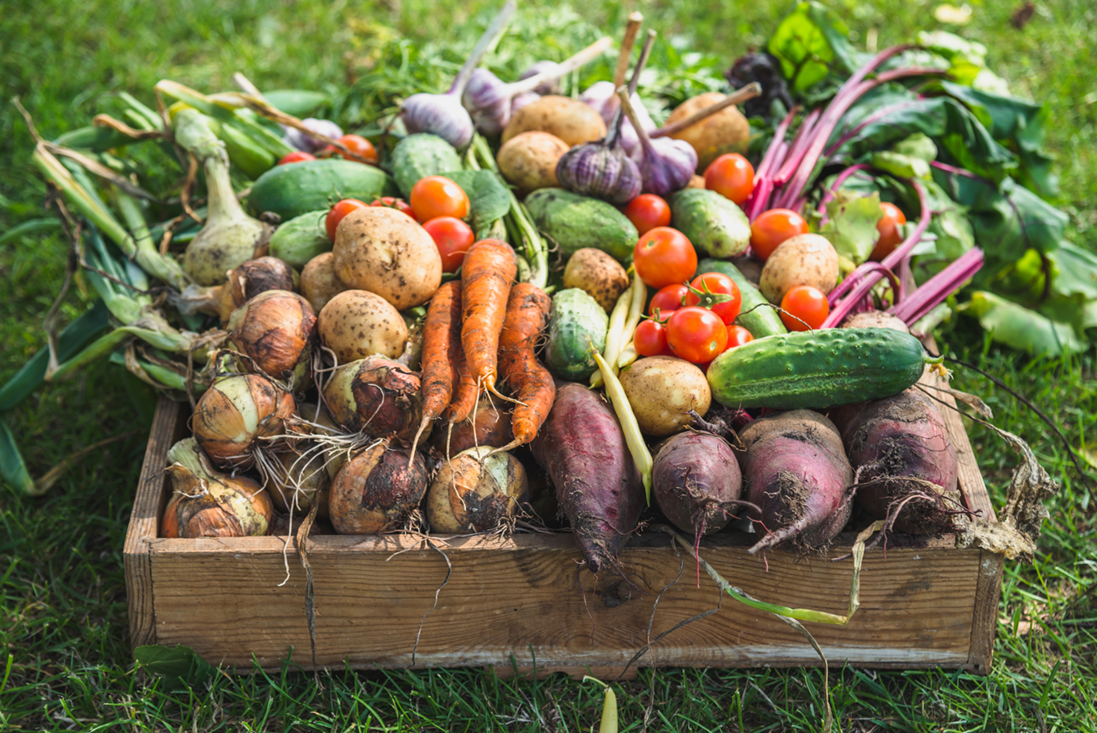Tips for Healthy Soil in Your Backyard Garden
May 6 Facebook Broadcast on Soil Health – Your Questions Answered
Want to build a better garden this year? It starts with having healthy soil. Below are tips from ARS's Soil Biology Group.
 Photo courtesy of Getty Images
Photo courtesy of Getty Images
Consider adding compost; it is a great way to improve soil structure and its water holding capacity. Additionally, compost will provide nutrients for your gardens soil microbes and plants. Add a couple of inches to your garden each year!
Soil is alive and teeming with microbes. It is this biology that drives the breakdown of organic matter, release of plant-available nutrients, and protection against plant pathogens. Although biology is critical to plant health, it is also important to consider the soil pH, organic matter, nutrients and moisture. Microbes are a lot like us, they need air and water and a diversity of foods. A well-structured soil with lots of organic matter provides the essentials.
In the movie "Field of Dreams," a voice tells Kevin Costner "if you build it, he will come." Soil biology is similar: If you build a good habitat, soil microbes will flourish. Create a healthy soil habitat (pH, soil structure, organic matter) to promote beneficial soil microbes.
Building organic matter, maintaining optimal pH, and managing deficiencies in critical nutrients such as nitrogen, phosphorous, and sulfur are important for both your plants and soil microbes.
 Photo courtesy of Getty Images
Photo courtesy of Getty Images
Micro-manures help your garden grow! All the tiny creatures that live in soil need to eat, and after eating they poop out nutrient rich micro-manures that help build soil organic matter. The most famous micro-manure is worm castings!
Hungry plants crave nitrogen, which can often be in short supply, even when compost is used. Try organic fertilizers such as blood meal, grass clippings, or manure. Or grab some nitrogen from the air by using legume cover crops in the fall or spring.
Think cover crops are only for large farming operations? Think again! Try using a cover crop like vetch, clover, beans, or rye to protect and nurture your garden soil over winter.
Plan to till your garden this spring? No need! Mulch and cover crops can reduce weed pressure and chemical applications while preserving your precious garden soil!
 Photo courtesy of Getty Images
Photo courtesy of Getty Images
Here are a few more tips from an ARS Master Gardener
- When watering your garden, it's best to use drip irrigation or a soaker hose instead of a sprinkler. The leaves stay dry, minimizing diseases and it reduces evaporation.
- Want to start a garden but don't have the space? Consider container gardening. They fit well on patios or decks, and tomatoes, greens and squash can grow in them.
- Tomatoes are a popular vegetable to grow in just about every backyard. When planting tomatoes, select transplants 6-10 inches tall and plant in the ground up to the 2nd or 3rd true leaves.
- Wondering why your garden veggies aren't growing big and strong? You may need a soil test. Check your local extension office to find out how.
Check Out These Cool ARS Soil and Gardening Apps
-
The LandPKS (Land-Potential Knowledge System) mobile app provides information about local soils and climate. Free download from: LandPotential.org, Google Playstore, and the iTunes App Store (by searching "LandPKS.")
- The Plant Hardiness Zone Map enables gardeners and growers to determine which plants are most likely to thrive at a location across the United States. Simply input your zip code.
